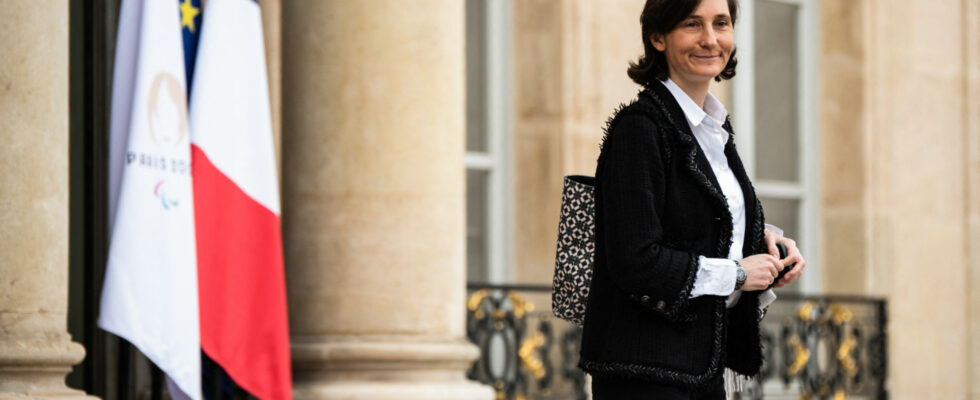Sports Minister Amélie Oudéa-Castera was indicted in December in the investigation by the Court of Justice of the Republic (CJR) after Noël Le Graët’s defamation complaint, a source close to the case learned on Thursday, confirmed by the general public prosecutor of the Court of Cassation.
A judicial investigation has been open to the CJR, the only jurisdiction authorized to judge ministers in the exercise of their functions, since June 21 to examine the complaint of the former boss of French football, who criticizes the minister for comments made in February 2023 on his management of the French Football Federation (FFF).
“Public defamation of an individual”
In a press release, Rémy Heitz, attorney general at the Court of Cassation, who acts as public prosecutor at the CJR, confirmed the indictment of the minister by the investigating committee for “public defamation against an individual”. Amélie Oudéa-Castera’s lawyer did not wish to comment. That of Noël Le Graët could not be reached immediately.
At the opening of the judicial investigation, the Ministry of Sports assured that Amélie Oudéa-Castera was “serene” and “ready to respond”, which she did “publicly and on different occasions in recent months, in unfounded accusations by Noël Le Graët. Noël Le Graët resigned in February with a bang from the FFF, which he had headed since 2011, after a damning audit report from the General Inspectorate of Education, Sport and Research (IGESR) on his management, amid accusations of sexual harassment.
“Inappropriate behavior towards women”
The IGESR inspectors estimated in this report that Noël Le Graët “no longer has the legitimacy necessary to administer and represent French football”, taking into account in particular his “inappropriate behavior (…) towards -screw women.” A few hours after her departure, her lawyer announced a complaint, claiming that Amélie Oudéa-Castera had “lied” about this report. He also highlighted a difference between the summary of the document, published on February 15 which mentioned “words” and SMS messages, “words or writings that are ambiguous for some and of a clearly sexual nature for others”, and its entirety.
This report has not been made public. The procedure in matters of press law makes it almost automatic, after a defamation complaint, the referral to an investigating judge and the indictment of the author of the remarks, the substantive debate taking place at the hearing .
However, the case law is different before the CJR. In 2014, its Requests Committee closed a defamation complaint from the controversial polemicist Dieudonné against Manuel Valls, then Minister of the Interior, immediately considering that the offense of defamation was not sufficiently characterized.
